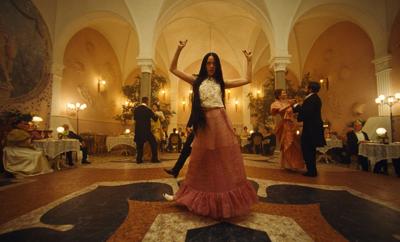Long before Variety set tongues wagging in November with its provocative cover story headlined “Is Marvel in trouble?,” Hollywood’s creativity crisis was abundantly clear to anyone paying attention.
In a city awash in sequels, retreads and unimaginative pablum, it has been evident for years.
Decades, even.
Disney honcho Bob Iger admitted as much on a Nov. 17 earnings call a couple of weeks after the Variety story was published and exactly one week after the glaring symbolism of the box office failure of its latest effort, fittingly titled simply “The Marvels” — and which, for the record, does not live up to that name.
“I’ve always felt that quantity can be actually a negative when it comes to quality,” Iger said in reference to the copious output of the studio’s Marvel shingle, “and I think that’s exactly what happened. We lost some focus.”
So what’s the cure? As Disney specifically and Hollywood in general attempt to recalibrate, where’s a moviegoer to look for something reliably original?
Two words: Yorgos Lanthimos.
If you recognize that name, it is probably because you saw 2015’s “The Lobster” or 2018’s “The Favorite” — in which case you have some idea of the phantasmagoria in store.
And if you don’t recognize it?
Well, hold on to your potatoes.
Like some unholy cross of Wes Anderson and Tim Burton, the unapologetically unconventional Lanthimos — a visual stylist whose storytelling chops are complimented by a riotously dark sense of humor — has been admirably pushing envelopes and breaking rules for more than a decade.
In the process, he has become one of the most exciting filmmakers in Hollywood.
His latest big-screen bizzarerie, the richly conceived “Poor Things,” arrives in theaters this month, and it just might be the apex — so far — of Lanthimos’ ongoing efforts to rewrite the Hollywood rulebook.
It is strange. It is stylish. It is at once daring, funny, beautiful and surreal.
And it is undeniably, unequivocally unlike anything playing in theaters right now, a wonderfully weird and visually stimulating breath of fresh air amid an award season rife with cinematic staleness.
The first clue that something different is in store comes with the opening credits, which, breaking with established convention, neither fade in and out nor scroll. Rather, they are square in format, framing the screen, forcing audience members to tilt their heads to read them.
The next clue? There are many, and they come quickly.
Maybe it’s the duck-headed dog. Or the pig-headed chicken. Or perhaps it’s the startling appearance of the perfectly cast Willem Dafoe, as a Victorian-era mad scientist whose deeply scarred face serves as a meticulously crafted reflection of his wounded soul.
Certainly, by the time he reanimates a young woman (a virtuosic Emma Stone) — through Frankenstein-adjacent methods best left undescribed here — it is abundantly clear we are not in Kansas anymore.
Or, more to the point, Hollywood.
He calls her Bella. She calls him God. And from the beginning, she has a lot to learn about being human.
Fortunately for her, God — short for Dr. Godwin Baxter — is also a deceivingly patient man, and so he teaches her what he can: how to walk, how to talk, how to behave in polite society.
But don’t mistake “Poor Things” for “My Fair Lady.” It is far more explicit, for starters, as the childlike Bella — toddling around as if on marionette strings — eventually and inevitably discovers the pleasures of the flesh.
Naturally, the more she learns about such delights, the more she wants to know. And experience.
Soon enough, at the encouragement of a deliciously oily paramour played by Mark Ruffalo, she runs off on a globe-trotting adventure of self-discovery and sexual fulfillment.
What follows is a visual and thespianic joy ride, as Lanthimos sets Bella loose to explore a world that often feels much like ours but which — through the use of fish-eye lenses, canted angles and other such visual embellishments — always feels a few unsettling degrees off.
Stone is the film’s anchor, appearing in nearly every frame, and — now 16 years and one Oscar after introducing herself to Hollywood in “Superbad” — she proves she is perfectly capable of carrying that load.
There aren’t many performers in Hollywood today graced with old Hollywood-style star quality, but Stone is one of them.
This is Stone’s second go-round with Lanthimos, after having appeared in a supporting role in “Favourite Things” that earned her an Oscar nomination. Don’t be surprised if their latest collaboration results in similar accolades — for her and him both.
Fair warning: “Poor Things” is not a film for all tastes. Those who prefer “NCIS” and “The Masked Singer” over “Eraserhead” and “Swiss Army Man” might want to opt for something else.
For those excited by narrative ingenuity, though, “Poor Things” is a surrealist masterpiece — and one that feels very much like an antidote for all that is ailing Hollywood right now.
Mike Scott can be reached at moviegoermike@gmail.com.
*****************
'Poor Things'
4 stars, out of 4
SNAPSHOT: A young woman, resurrected a la Frankenstein, goes on a globe-trotting journey of self-discovery.
CAST: Emma Stone, Willem Dafoe, Mark Ruffalo, Ramy Youssef, Jerrod Carmichael.
DIRECTOR: Yorgos Lanthimos.
RATED: R.
TIME: 2 hours 21 minutes.
WHEN AND WHERE: Opens Friday (Dec. 8) in limited release, followed by a Dec. 22 wide release.

